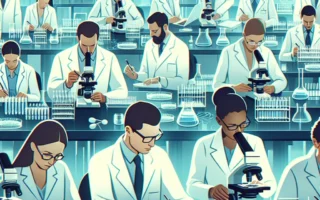Understanding the Biology of Aging
Understanding the biology of aging is crucial in developing effective anti-aging strategies. Aging is a complex process influenced by a variety of factors, including genetic, environmental, and lifestyle elements. At the cellular level, aging is associated with a decline in the body’s ability to repair and regenerate damaged tissues, leading to a gradual deterioration of organ function.
Research has revealed that several key mechanisms contribute to the aging process, including telomere shortening, mitochondrial dysfunction, cellular senescence, and genomic instability. Telomeres, the protective caps on the ends of chromosomes, shorten with each cell division, eventually leading to cellular senescence or death. Mitochondria, the energy powerhouses of cells, play a critical role in aging due to their impact on energy production and the generation of reactive oxygen species.
Cellular senescence, characterized by a permanent cell cycle arrest, contributes to aging by affecting tissue repair and promoting chronic inflammation. Genomic instability, resulting from DNA damage and repair defects, also contributes to age-related cellular dysfunction.
Furthermore, the role of epigenetic modifications in the aging process has gained significant attention. Epigenetic changes, such as DNA methylation and histone modifications, can influence gene expression patterns and contribute to age-related changes in cellular function.
Understanding these underlying biological processes of aging provides the foundation for developing targeted interventions to slow down or reverse age-related decline. By addressing these key mechanisms, scientists and researchers aim to develop interventions such as telomerase activation, mitochondrial support, senolytics, and epigenetic modifications to promote healthy aging.
By unraveling the intricacies of the biology of aging, scientists are paving the way for innovative anti-aging strategies that have the potential to enhance longevity and improve overall quality of life.
Impact of Lifestyle Choices on Aging Process
When it comes to effective anti-aging strategies, lifestyle choices play a pivotal role in impacting the aging process. Research has shown that certain lifestyle factors can either accelerate or decelerate the aging of cells and the body as a whole. One of the key lifestyle choices that significantly influences the aging process is diet. Consuming a diet rich in antioxidants, vitamins, and healthy fats can help combat oxidative stress and inflammation, both of which are primary drivers of aging. Additionally, regular physical activity has been identified as a powerful tool in the anti-aging arsenal. Exercise not only helps maintain muscle mass and bone density, but it also promotes cellular health and reduces the risk of chronic diseases associated with aging.
Another critical aspect of lifestyle choices is stress management. Chronic stress can lead to accelerated aging at the cellular level, affecting the body’s ability to repair and regenerate. Therefore, adopting stress-reducing practices such as meditation, yoga, or mindfulness can have a profound impact on slowing down the aging process. Furthermore, adequate sleep is fundamental for effective anti-aging. During deep sleep, the body undergoes essential repair processes, and lack of sleep has been linked to premature aging and a range of health issues.
In conclusion, lifestyle choices wield considerable influence over the aging process. By embracing a nutrient-rich diet, regular exercise, stress management techniques, and prioritizing quality sleep, individuals can proactively mitigate the effects of aging and promote long-term vitality and well-being.
The Role of Genetics in Aging
Genetics play a significant role in the aging process, influencing the way our bodies change and develop over time. The study of genetics has revealed that certain genes are associated with longevity, while others may predispose individuals to age-related diseases. Understanding the role of genetics in aging is crucial for developing effective anti-aging strategies.
Research has shown that variations in specific genes can impact the rate of aging. For example, the human telomerase reverse transcriptase (hTERT) gene is involved in the maintenance of telomeres, the protective caps at the end of chromosomes. Shortened telomeres are associated with cellular aging and increased susceptibility to age-related diseases. Additionally, the apolipoprotein E (APOE) gene has been linked to the risk of developing Alzheimer’s disease, a condition commonly associated with aging.
Furthermore, genetics can influence the body’s ability to repair and regenerate tissues, as well as the production of essential proteins and enzymes involved in the aging process. Studies on centenarians, individuals who live to be 100 years or older, have identified genetic variations that may contribute to their exceptional longevity and healthspan.
By understanding the genetic factors that influence aging, researchers are better equipped to develop personalized anti-aging interventions. This knowledge opens the door to targeted treatments that take into account an individual’s genetic predispositions, ultimately leading to more effective anti-aging strategies.
Emerging Technologies in Anti-Aging Research
Emerging technologies in anti-aging research have revolutionized the way we approach the aging process. From advanced skincare formulations to groundbreaking medical interventions, the scientific community is continually exploring new frontiers in anti-aging strategies.
One of the most promising technological advancements in anti-aging research is the development of senolytics, which are compounds that target and eliminate senescent cells. These cells have been implicated in the aging process and age-related diseases. Through the use of senolytics, researchers aim to not only slow down the aging process but also mitigate the impact of age-related health issues.
Furthermore, the advent of gene editing technologies such as CRISPR has opened up possibilities for modifying genetic factors that contribute to aging. By targeting specific genes associated with aging, scientists are exploring the potential to reverse or slow down the biological clock at the cellular level.
In addition to these cutting-edge approaches, research into the role of mitochondria in aging has gained significant traction. Mitochondria, the powerhouse of our cells, play a crucial role in energy production and cellular functions. Novel interventions targeting mitochondrial dysfunction offer promising prospects for ameliorating age-related decline and promoting overall health and longevity.
As the field of anti-aging research continues to evolve, these emerging technologies hold immense potential to redefine our understanding of aging and pave the way for more effective and personalized anti-aging strategies.
Nutrition and its Influence on Reversing Aging
Effective anti-aging strategies rely on a holistic approach that encompasses various factors, including nutrition and its influential role in reversing aging. A well-balanced and nutrient-dense diet is essential for maintaining optimal health and combating the aging process. Antioxidants, vitamins, and minerals derived from a diverse range of fruits, vegetables, lean proteins, and whole grains can significantly impact the body’s ability to repair and renew itself, thereby slowing down the aging process.
Antioxidants, such as vitamin C, E, and beta-carotene, play a crucial role in neutralizing harmful free radicals that contribute to cellular damage and aging. Incorporating these antioxidants into the diet through foods like berries, citrus fruits, nuts, and leafy greens can help protect the body from oxidative stress and preserve youthful cellular function. Moreover, omega-3 fatty acids found in fatty fish, flaxseeds, and walnuts have been shown to support skin health, reduce inflammation, and promote heart health, all of which are key components of anti-aging strategies.
Furthermore, the consumption of adequate protein is vital for maintaining muscle mass, bone density, and overall strength as we age. Including lean protein sources such as poultry, fish, beans, and legumes in the diet can aid in preserving muscle mass and supporting the body’s repair processes. Additionally, staying well-hydrated by drinking plenty of water and minimizing the intake of sugary and processed foods can contribute to healthy, hydrated skin and overall well-being.
In conclusion, nutrition plays a fundamental role in the body’s ability to combat aging at the cellular level. By prioritizing a nutrient-rich diet filled with a variety of antioxidants, vitamins, minerals, and lean proteins, individuals can effectively support their body’s natural anti-aging mechanisms and promote longevity.
Holistic Approaches to Slowing Down Aging
When it comes to effective anti-aging strategies, one approach that has gained attention in recent years is the holistic approach to slowing down the aging process. This approach focuses on addressing aging from a comprehensive perspective that encompasses not only the physical aspects but also the mental, emotional, and spiritual well-being of an individual.
One key aspect of holistic anti-aging strategies is to focus on a healthy lifestyle that includes regular exercise, a balanced diet, and stress management techniques. Exercise, particularly resistance training and high-intensity interval training, has been shown to have significant anti-aging effects at the cellular level, promoting the production of mitochondrial biogenesis and reducing oxidative stress.
In addition to exercise, adopting a nutrient-dense, anti-inflammatory diet rich in antioxidants, vitamins, and minerals can support overall health and slow down the aging process. Consuming a variety of colorful fruits and vegetables, whole grains, lean proteins, and healthy fats can provide the body with essential nutrients to combat cellular damage and support optimal functioning.
Furthermore, holistic approaches to anti-aging emphasize the importance of mental and emotional well-being. Practices such as mindfulness meditation, yoga, and deep breathing exercises can help to reduce stress, lower inflammation, and promote a sense of inner calm, which can have a positive impact on the aging process.
Lastly, nurturing spiritual health and meaningful connections with others has been found to contribute to a longer, healthier life. Engaging in activities that bring joy, purpose, and fulfillment, as well as maintaining strong social ties, can support overall well-being and slow down the effects of aging.
By taking a holistic approach to anti-aging, individuals can address the underlying factors that contribute to the aging process and promote longevity from a comprehensive standpoint.



